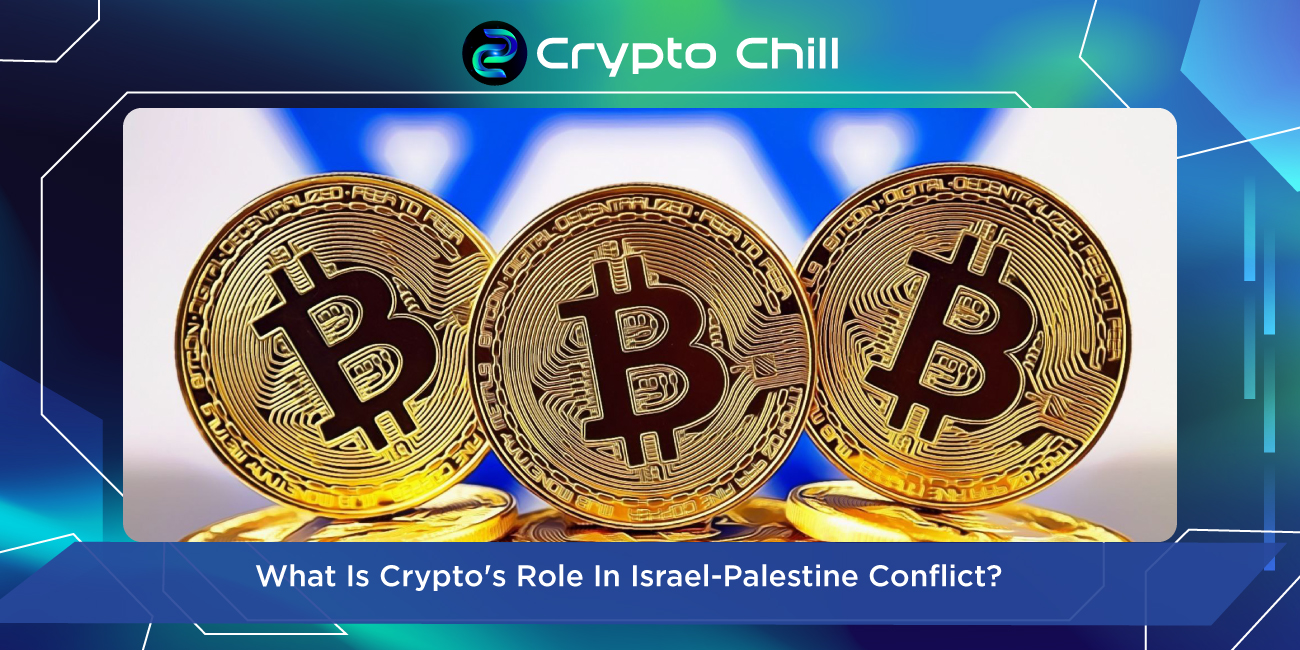In the midst of the long-standing Israel-Palestine conflict, a new element has entered the scene: cryptocurrency. Over 100 American lawmakers claim that crypto played a significant role in the recent Middle East crisis. They’ve demanded answers about cryptocurrency’s involvement in attacks on Israel and expressed concerns about crypto-financed terrorism. But what’s the real story behind cryptocurrency in this conflict?
Crypto’s Controversial Connection to the Middle East Crisis
A group of United States Senators and Congress members sent a letter to President Biden, led by Senators Elizabeth Warren and Sherrod Brown. They sought answers about cryptocurrency’s role in recent attacks on Israel and the White House’s plans to prevent crypto-financed terrorism. This letter adds a new dimension to Washington’s evolving narrative, suggesting that crypto played a significant role in the attacks carried out by Hamas on Israel, which resulted in substantial casualties.
Ari Redbord, Global Head of Policy at TRM Labs, a blockchain intelligence firm, offers a different perspective. Redbord argues that cryptocurrency is just a small piece of the puzzle when it comes to Hamas’s funding. Since the conflict began in October, only a relatively small amount of cryptocurrency has been raised by Hamas and its supporters.
TRM Labs and other law enforcement agencies track digital wallets connected to potential criminal activities. The transparency of blockchain technology allows them to identify and freeze funds more efficiently than traditional banking systems. Former CIA director Michael Morell even praised Bitcoin for its surveillance capabilities.
A Comparative View
While terrorist organizations have used cryptocurrency for fundraising, Redbord points out that they’ll exploit any available means, including traditional banking. This means that illicit finance risks exist in every financial system. However, there’s no call to dismantle the entire banking sector due to its use in transferring funds to such groups.
Pushback from Cryptocurrency Supporters
On Capitol Hill, crypto industry advocates are starting to question the idea that blockchain networks are primarily responsible for funding criminal activities. Some believe that linking crypto to terrorism in this way is opportunistic and cynical. Sheila Warren, CEO of the Crypto Council for Innovation, highlights the irony that U.S. government hostility towards crypto might drive the industry to less regulated offshore locations, making it even harder to regulate.
Challenging the ‘Shadowy’ Image of Cryptocurrency
Critics have often painted crypto as a “shadowy” financial tool. However, the ongoing humanitarian crisis in the Middle East provides a different perspective. After Hamas’s attack, the Israeli military retaliated with force, leading to numerous casualties and humanitarian distress. This has prompted nonprofits to attempt to send aid to Gaza. Still, they’ve encountered obstacles due to the ongoing conflict.
Steve Sosebee, the president and founder of the Palestine Children’s Relief Fund (PCRF), reveals that his organization accepts donations in both fiat currency and cryptocurrency. The challenge isn’t fundraising; it’s delivering aid to the people in Gaza who are under siege. For those on the ground, whether the funds are in crypto or fiat, the debate is moot.
Cryptocurrency Amidst a Humanitarian Crisis
The role of cryptocurrency in the Israel-Palestine conflict is far from straightforward. While it has been used for fundraising by certain groups, it represents only a small portion of their overall funding. Cryptocurrency’s transparency has enabled authorities to trace and seize illicit funds, making it a valuable tool for law enforcement.
However, the attempt to link cryptocurrency to the ongoing crisis oversimplifies the complex geopolitical situation in the Middle East. The humanitarian crisis reveals the limitations of both traditional financial systems and cryptocurrency in facilitating essential aid delivery.
Conclusion
The role of cryptocurrency in the Israel-Palestine conflict is not as clear-cut as it may seem. While it has been used for fundraising by some groups, it’s just one piece of a complex puzzle. The ongoing crisis demonstrates that the challenges in the region go beyond the choice of currency used. Understanding the nuances of this complex issue is crucial for accurate analysis and effective solutions in this tumultuous region.
Disclaimer: The information in this article is not investment advice from CryptoChill. Overall, cryptocurrencies always carry many financial risks. Therefore, do your own research before making any investment decisions based on this website’s information.










No Comment! Be the first one.